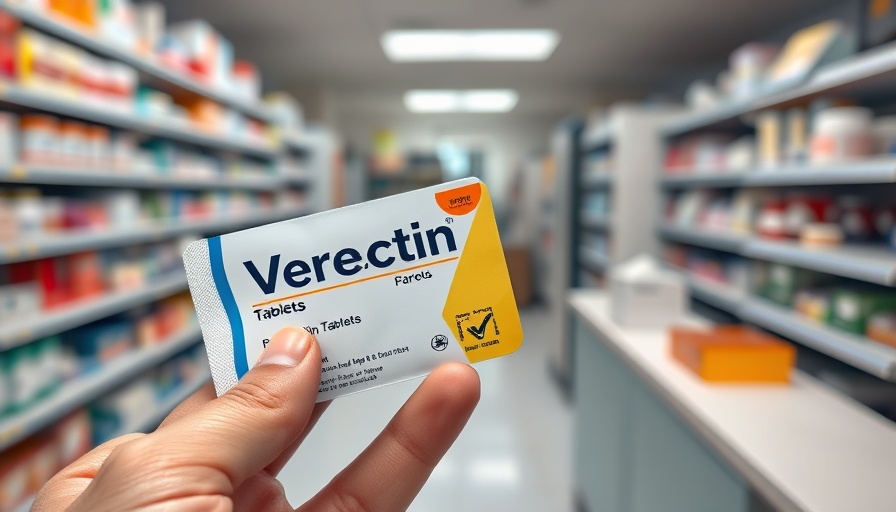
Demystifying Ivermectin: Beyond the Hype
Ivermectin is a name that has circulated widely in recent years, particularly in the context of the COVID-19 pandemic. Initially hailed as an anti-parasitic drug, its reputation has been transformed into a controversial symbol of health misinformation. Most recently, claims that it can treat cancer have caused both concern and confusion among medical professionals and the public. In light of these developments, it is essential to clarify what ivermectin is truly capable of and examine the implications of its misuse.
The Surge in Popularity: Understanding the Roots
Social media campaigns and high-profile endorsements have driven a remarkable spike in interest surrounding ivermectin. Notably, actor Mel Gibson's claims on the popular podcast “The Joe Rogan Experience” that he had seen friends recover from cancer after taking the drug fueled a flurry of Google searches. However, while anecdotal evidence may be compelling, it is crucial to ground our understanding in scientific research. Health professionals like Dr. Skyler Johnson have noted the increasing number of inquiries about ivermectin treating conditions it has not been proven to address.
The Impact of Misinformation: A Growing Concern
The proliferation of inaccuracies regarding ivermectin has raised alarms among the medical community. Dr. Johnson has expressed serious concerns that patients may forgo traditional cancer treatments while harboring false hopes about ivermectin’s efficacy. With its marketing as a miracle cure, the potential risk is not just about misinformation—it's about real health consequences for individuals who may choose ineffective therapies over established medical treatments.
Legislative Moves: A Double-Edged Sword
Compounding the situation, several states have initiated legislation to ease access to ivermectin. Last week, Arkansas’s governor signed a bill allowing individuals to purchase the drug without a prescription. Similar movements are being seen in states like Georgia, Texas, and Alabama. This could increase the risk of misuse, particularly among vulnerable populations seeking hope in desperate situations.
Health Experts Weigh In: Unpacking the Realities
Experts warn against the rush to praise ivermectin as a cure-all. Research overwhelmingly indicates that ivermectin is ineffective in treating COVID-19, and there is no credible evidence to support its use against cancer. This raises significant ethical questions concerning patient autonomy and the responsibility of both medical professionals and lawmakers in guiding public understanding of medications.
Future Implications: Navigating the Road Ahead
The ongoing debate about ivermectin points to a larger issue of health misinformation in the digital age. As individuals increasingly turn to social media, the challenge for health experts is to provide clarity amidst a flood of conflicting information. Moving forward, rigorous research into the drug’s effectiveness and clear communication from trusted health professionals will be essential in rectifying misconceptions and protecting patients from potential harm.
What Can We Learn? Practical Advice for Patients
Patients facing serious health issues such as cancer must exercise caution when considering treatment options. Engaging with healthcare providers about evidence-based therapies and creating an open dialogue that encourages patients to voice their concerns about misinformation is vital. Informed decision-making can be a powerful tool in health management.
In conclusion, while the buzz surrounding ivermectin may generate a sense of hope, understanding its limitations is imperative. As we navigate through medical claims and misinformation, patients should rely on credible sources and validated treatment protocols to guide their health decisions. By doing so, we can avoid the risks associated with unproven remedies and ensure more effective care.
 Add Row
Add Row  Add
Add 




 Add Row
Add Row  Add
Add 

Write A Comment